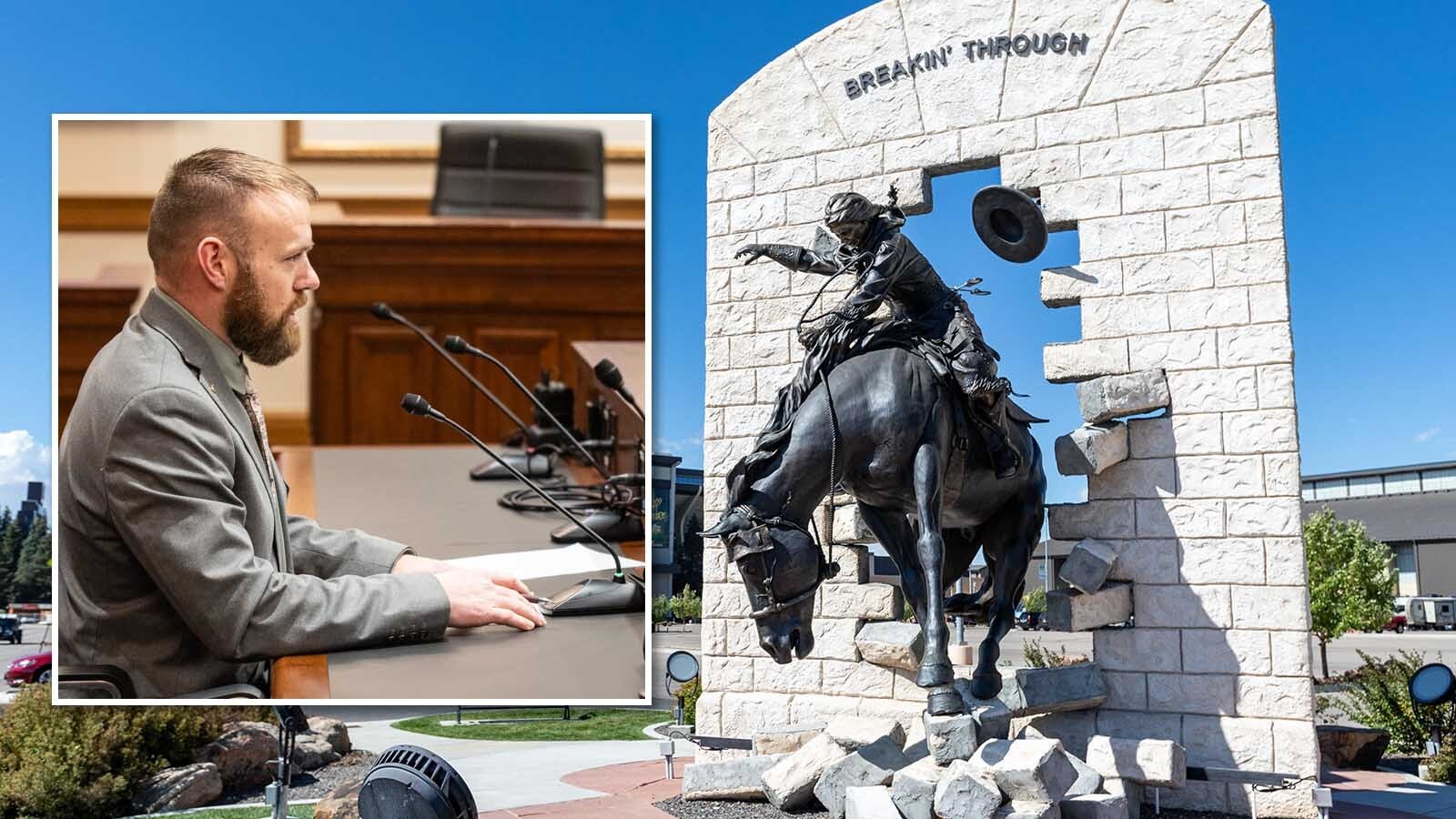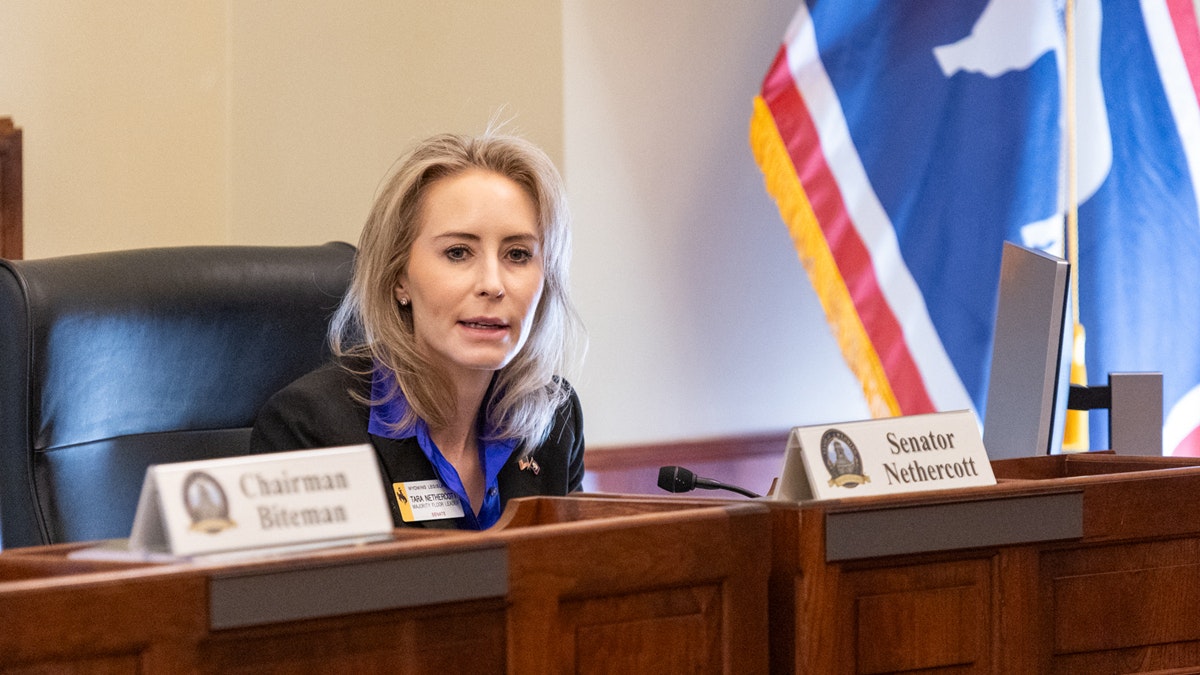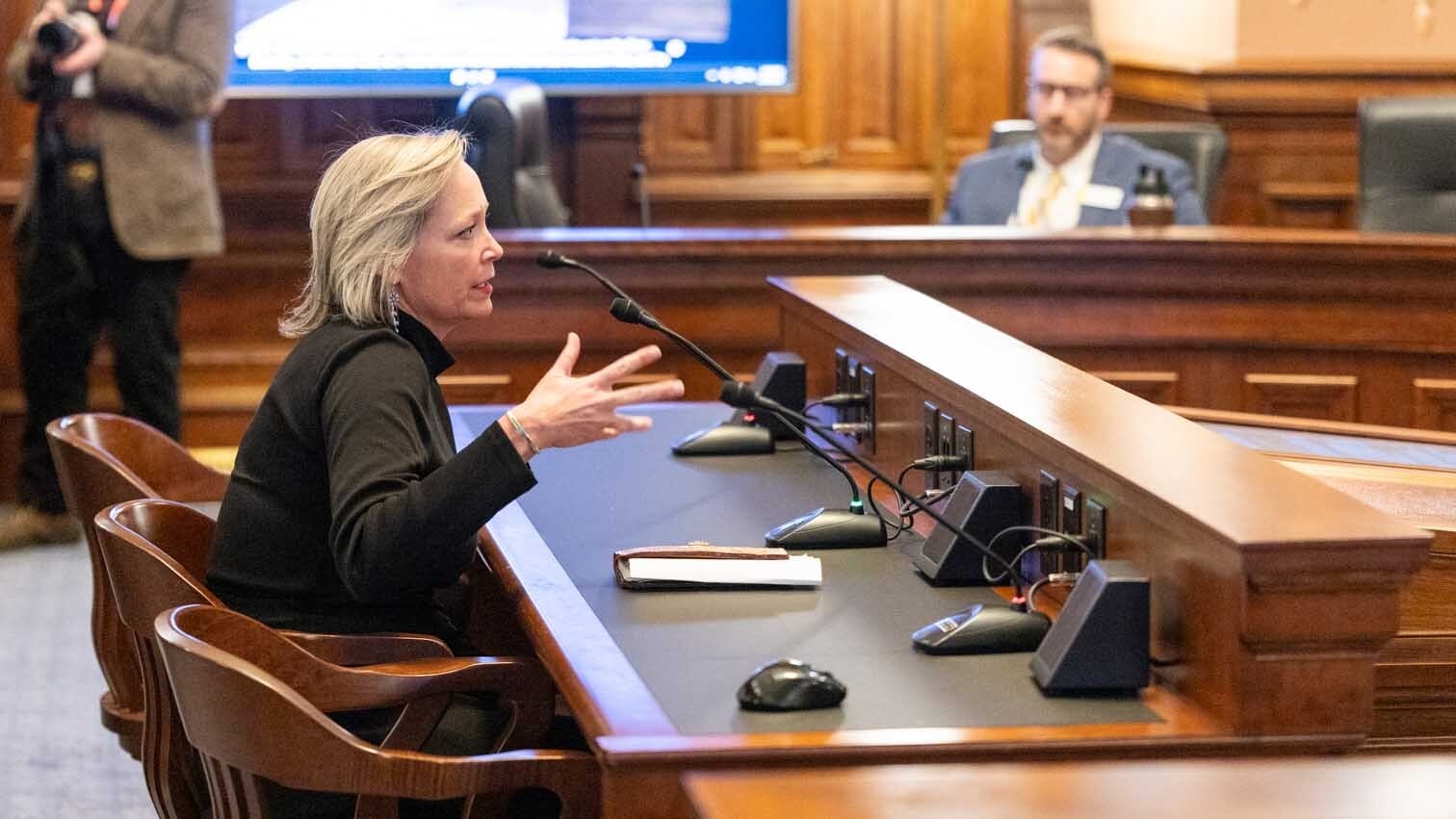It came at an unexpected moment and on an unexpected bill when Cheyenne Republican Rep. Landon Brown’s frustration boiled over Tuesday, deciding he had finally had it with some of his fellow House members.
After being on the losing end of more than a few bills and amendments this session, Brown took to the House floor to vent his exasperation that members are not debating bills enough and are taking “marching orders” on how to vote from Wyoming Freedom Caucus leadership.
Brown raised his concerns during debate on a bill repealing the state’s Budget Reserve Account. He said he wasn’t getting specific enough answers on why this account should be eliminated and that members were simply being told to support the legislation.
“This is what this body does — we debate, we don’t just take marching orders, we don’t just get told this is how we need to vote on a bill,” he said. “We debate and we debate on the merits of the bill and whether or not this is a good policy shift for the state of Wyoming for now and future generations.”
Brown said he had to walk out of the chamber and take a deep breath after chastising legislators the first time, tempted to put his face in the snow “because I was so heated.”
“I’m frustrated, I’m frustrated with the way this body has chosen to debate these bills lately,” he said.
Brown explained to Cowboy State Daily after the debate that he’s frustrated because deleting the account represents a “major policy shift” for the state.
“Regardless of the implications of doing the right thing, no one in the body was willing to answer questions about a major policy shift,” he said. “That is the concern. It shows me how many people are voting on bills now because they are told to vote a certain way but not because they have any clue what the bill actually does.”
Many of the votes in the House this session have been predictable, with members of the majority Freedom Caucus and those who align with the group in a consistent voting bloc. Brown is not a member of this contingency.
Rep. John Bear, R-Gillette, chairman emeritus of the Freedom Caucus, said none of Brown’s accusations about legislators taking “marching orders” are true.
“When accused by a fellow member of untoward behavior, conservatives do not complain about false accusations,” Bear said. “No one is told how to vote, but I believe people are sick and tired of his (Brown) and other’s filibustering.”
Should They Debate?
Brown believes the House is being “non-deliberative and just following the playbooks as dictated from Washington, D.C., and the big brother telling them what to do.”
This is in reference to the State Freedom Caucus Network, a Capitol Hill group that oversees the local Freedom Caucus.
Brown points to there being multiple instances where Bear and Rep. Tony Locke, R-Casper, have stood up and told members to vote against bills with no reason given, resulting in the bills or amendments dying.
“That is not good policy making,” Brown said. “That is bad for Wyoming.”
Rep. Daniel Singh, R-Cheyenne, a member of the Freedom Caucus, disagrees and believes most debates about bills are happening off the floor. Singh said he was fully aware of what the Budget Reserve Account bill did while debate was occurring.
“A lot of the questions we ask, those conversations will happen off the floor,” he said. “I’m not going to take the rhetoric. I’m not going to let it get under my skin like that.”
He also said members should have a good idea how they’ll vote on a bill before any discussion on it ever begins and do their homework in the days leading up to it.
“You should be able to make the call as to ‘yes’ or ’no’ before the conversation happens on the floor,” he said.
Rep. Ken Pendergraft, R-Sheridan, a member of the Freedom Caucus, expressed some empathy for Brown on the floor about his confusion on the bill and admitted that it would be difficult to explain every detail about what it does.
“I’m disappointed because I wish I could explain everything in here,” he said.
Brown said he appreciated Pendergraft’s comments.
Pendergraft also suggested that instead of being “combative,” members of the House should lean on their more veteran lawmakers to learn what the Reserve Account does.
Those answers eventually came from Bear and Reps. Steve Harshman, R-Casper, and Bob Nicholas, R-Cheyenne.
Brown ultimately ended up voting to support the bill, which passed on first reading on a 37-17 vote.
“The bill itself is absolutely a good bill,” Brown said. “It does increase transparency and is a good piece of policy, but it was proven to me that the sponsors of the bill had no clue what they were doing or how the bill works.”
What About The Bill?
The Budget Reserve Account is one of the state’s checking accounts within its highly dense budget. Many conservatives have complained that the state has too many “coffee cans,” in reference to budget accounts they believe make it too difficult to understand the state’s fiscal picture.
Those who support the bill, Senate File 168, like Rep. Abby Angelos, R-Gillette, argued that it brings more transparency for the public.
Proponents of keeping the account said it keeps the governor in line against spending more money.
In short, the account creates a mandatory reserve for federal mineral royalties. If repealed, the money will go into the general fund, where it can be spent without limits.
Bear said repealing the account amounts to just deleting another checking account for the state.
“We’re simply eliminating that account to simplify things so constituents can tell what we do,” he said.
He also said that if members of the House looked at how the bill passed unanimously in the Senate, they would find all the answers they needed to see.
Leo Wolfson can be reached at leo@cowboystatedaily.com.





